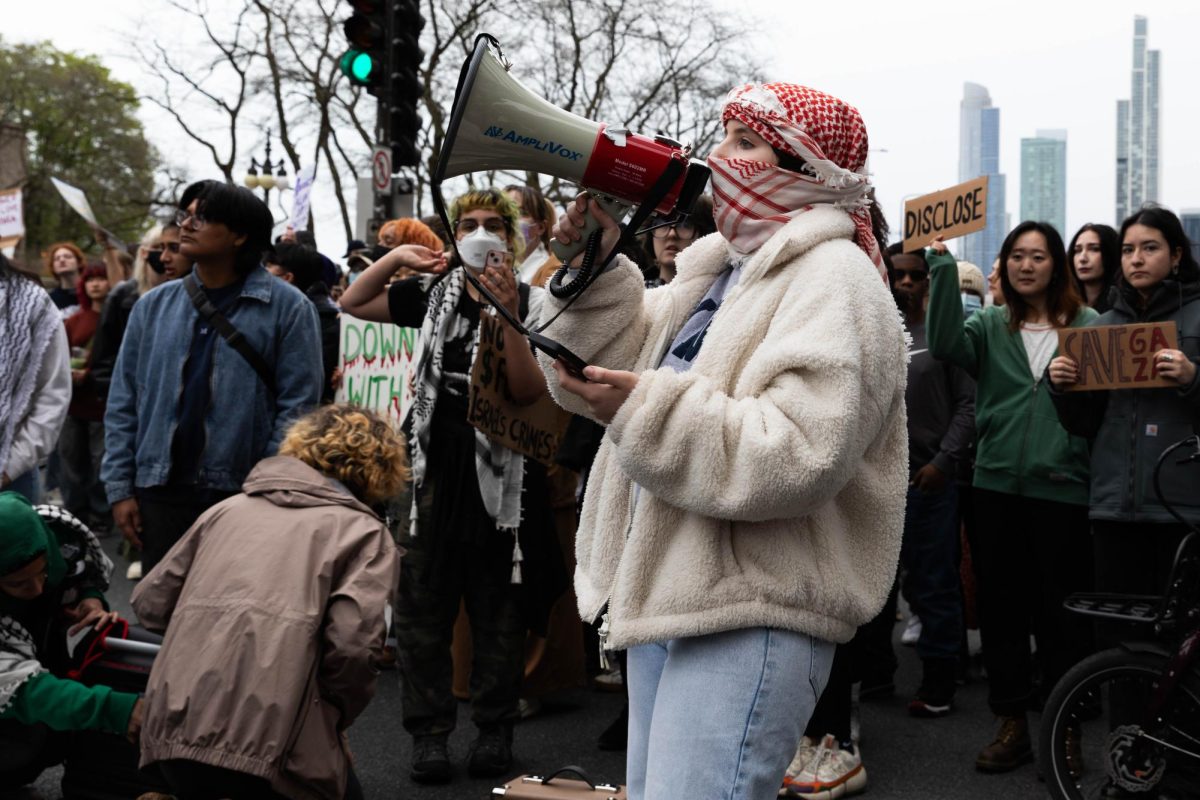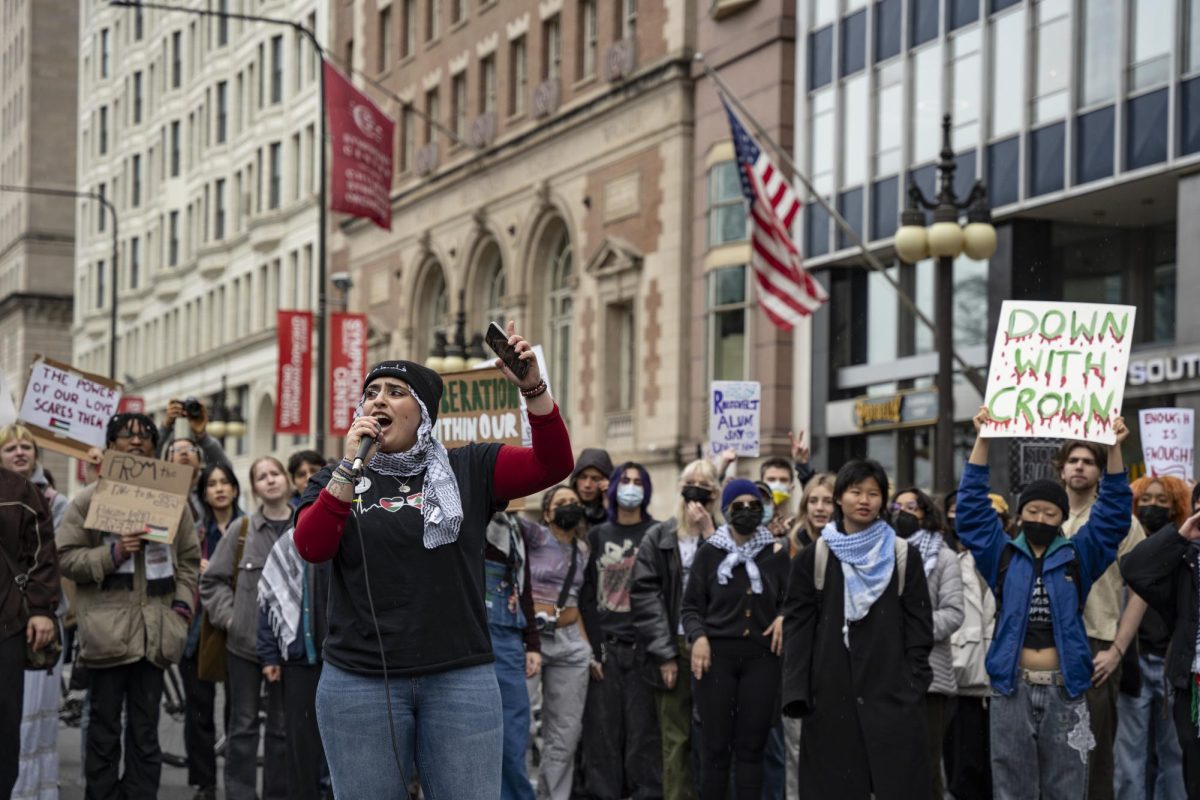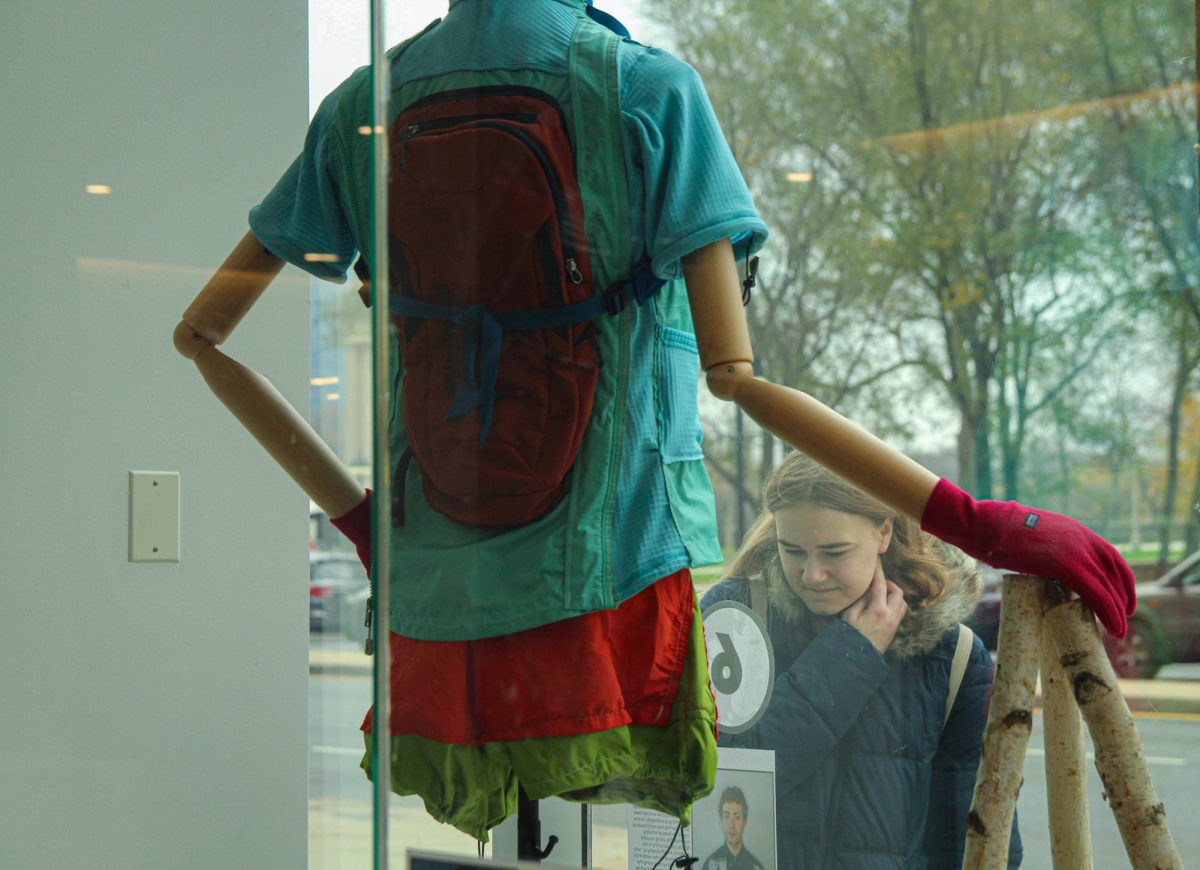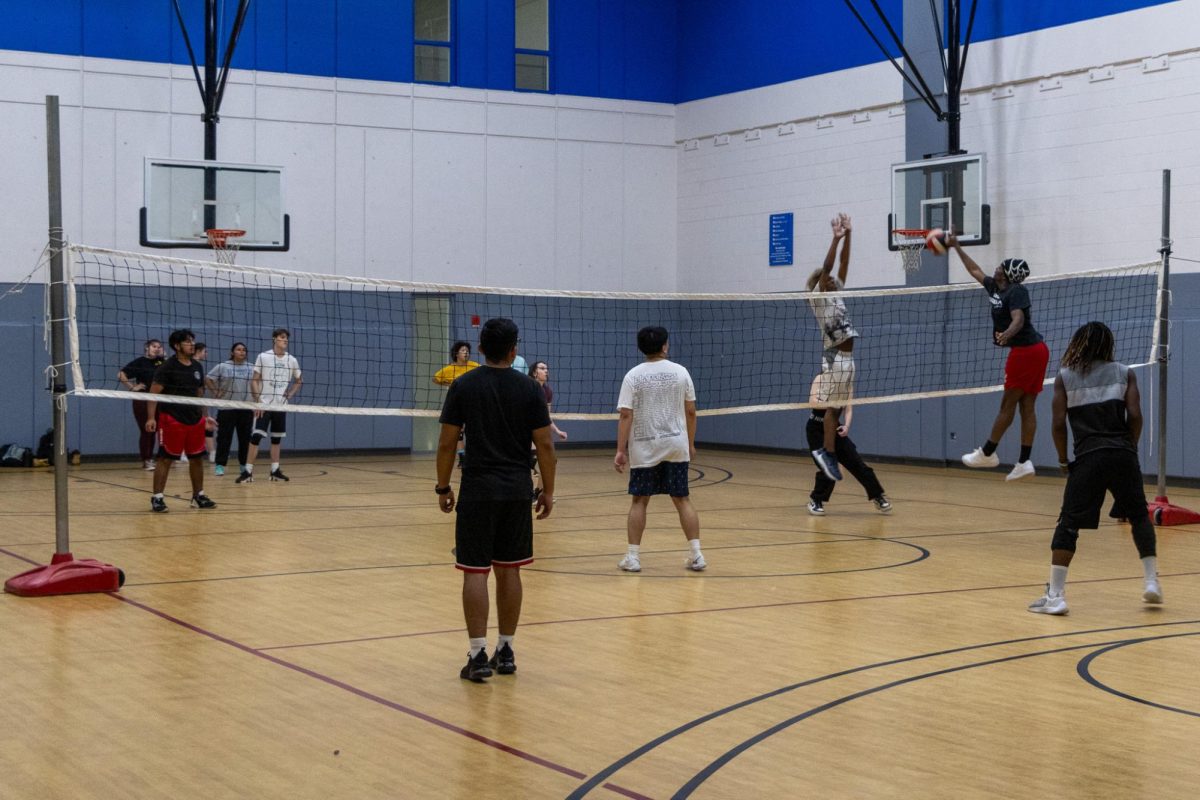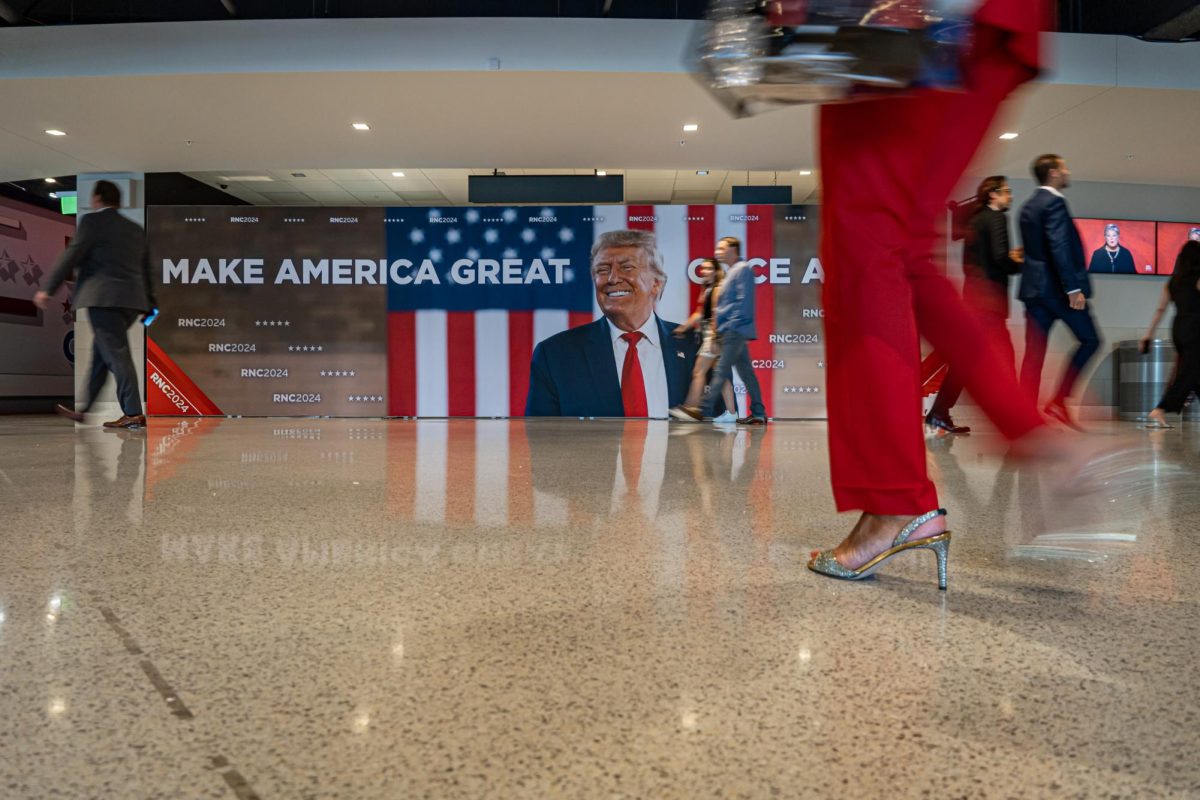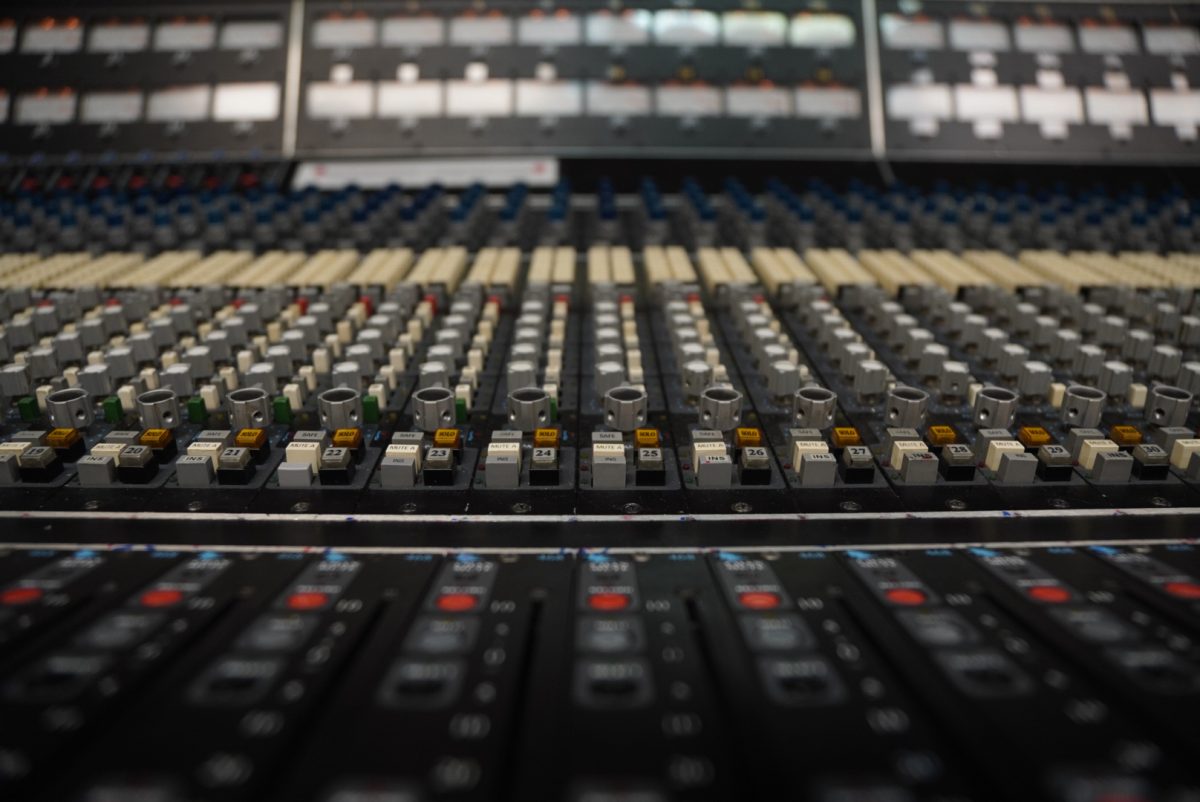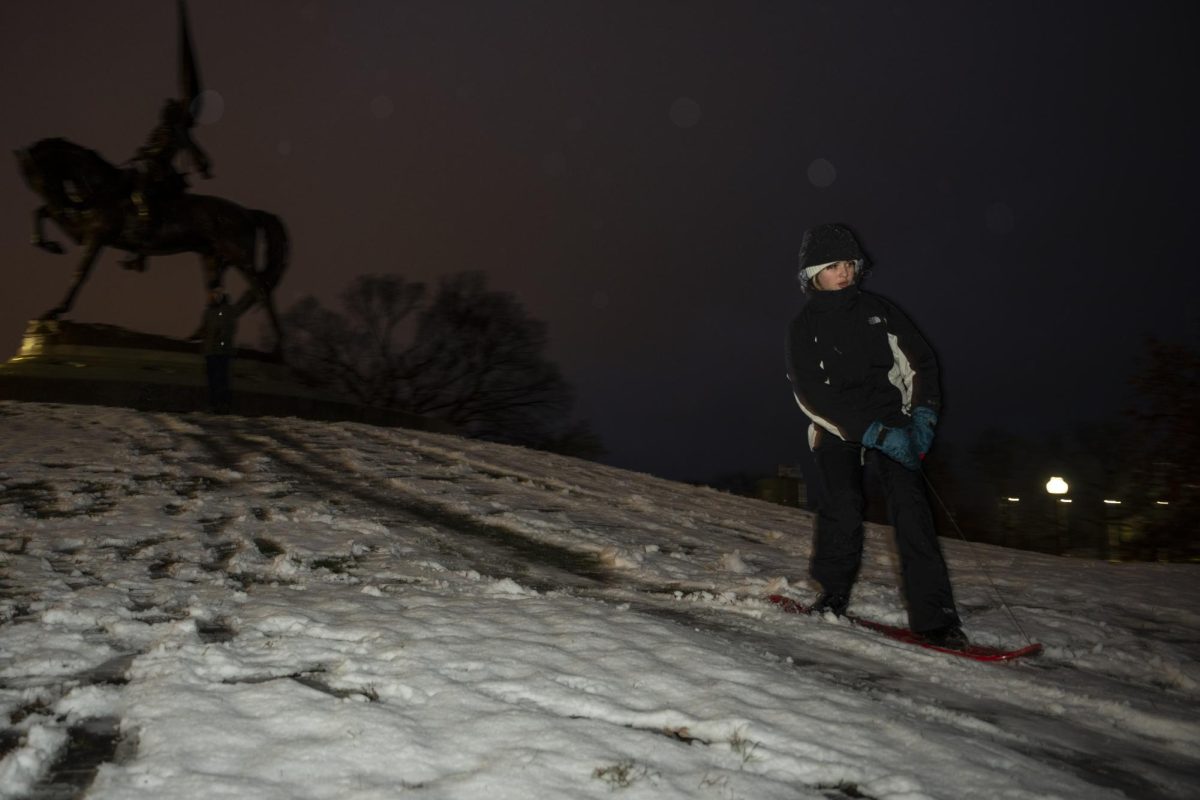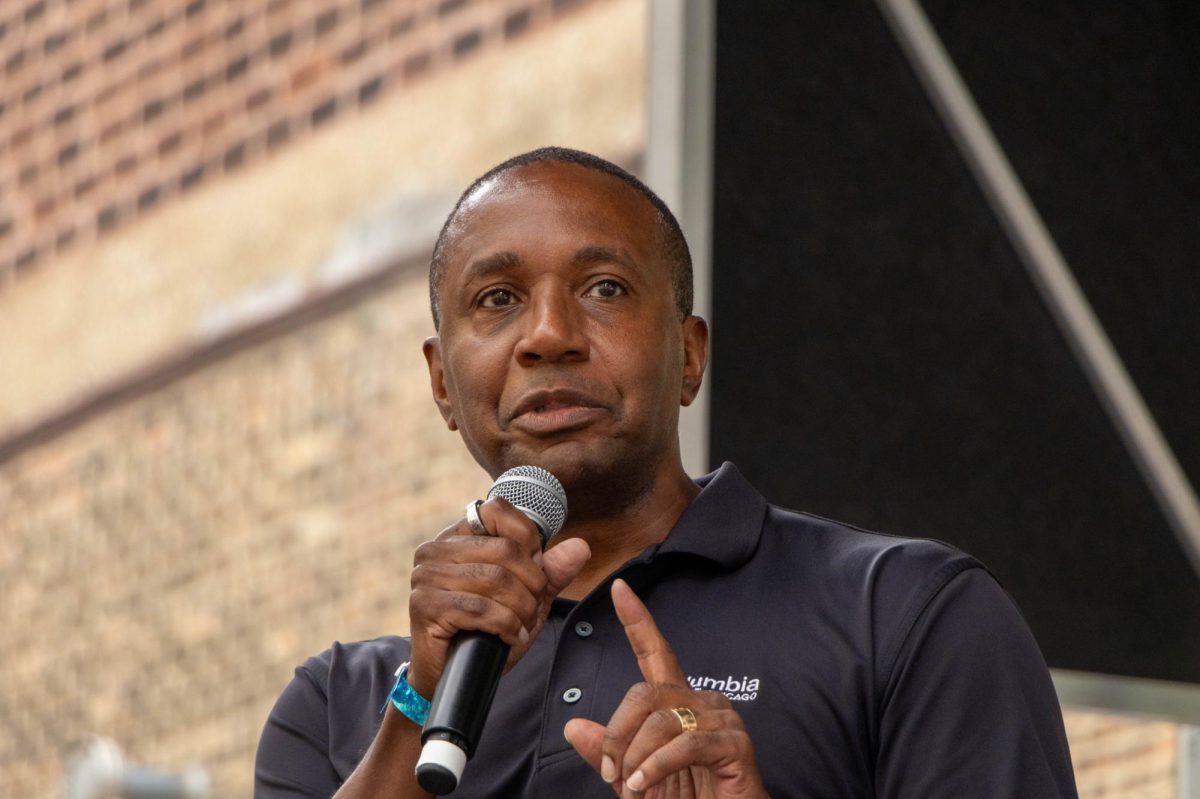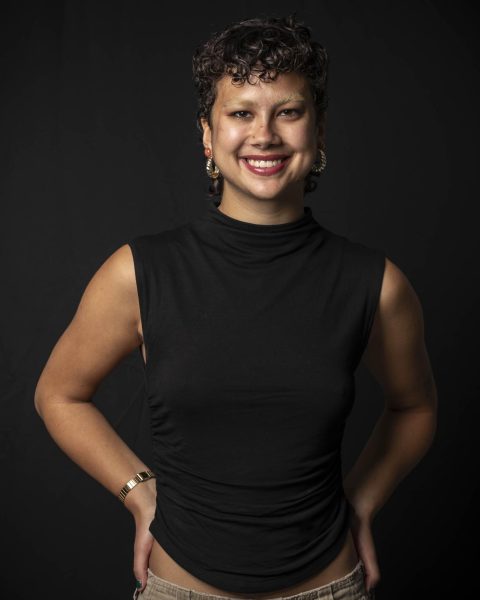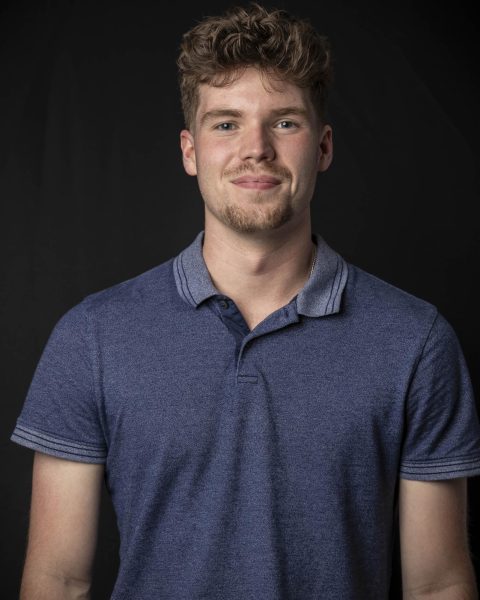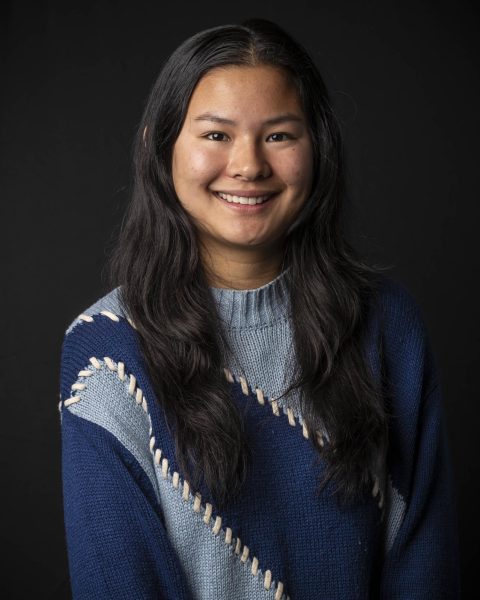Students from Columbia College, Roosevelt University and the School of the Art Institute stood in solidarity outside of the Art Institute on Friday, April 26 to protest the ongoing war in Gaza.
The Columbia chapter of Students for Justice in Palestine organized a campus walkout in the South Loop on Friday. Columbia students started at 618 S. Michigan and marched to the Art Institute, where they were joined by students from the other schools.
Hundreds of students held up signs and drummers joined in to the beat. Students shouted “free, free Palestine” and “disclose, divest, we will not stop, will not rest.”
Brandon Anaya, a first-year transfer student at Columbia majoring in creative writing, attended the protest in support of the nationwide move and “just end the occupation in Palestine in whatever way we can.”
The students and their supporters are part of a mostly peaceful campus movement sweeping the country to protest against Israel’s retaliation in Gaza for the Oct. 7 Hamas attacks. They are also demanding that their institutions cut any financial and academic ties to Israel and companies that may be profiting from the Israel-Hamas war.
Over 34,000 Palestinians have been killed in Israel’s response to the surprise attacks by Hamas that killed 1,200 people in southern Israel. More than 200 people were taken hostage from Israel, and 130 are still being held captive, although it’s not clear how many may still be alive.
The protests started in Columbia University in New York and spread after more than 100 students were arrested on April 18.
Students have since set up encampments on other college campuses, including Northwestern University outside of Chicago, the University of South Carolina, the University of Texas at Austin and others.
It is one of the biggest escalations of campus unrest in years.
Hundreds of students have been arrested in various places, primarily for violating campus prohibitions over the encampments. There also have been clashes between Palestinian-Americans and student groups that support Israel. Some Jewish students have reported feeling unsafe.
Students have been arrested at Indiana University, the University of Minnesota and the Ohio State University, among others.
At Northwestern, the Daily Northwestern student newspaper reported the university had revised its demonstration policy in response to a tent encampment on campus. The interim policy prohibits tents and restricts bullhorns and other types of activities before 5 p.m. during the weekday.
The university said students who didn’t remove tents were cited by university police.
Hossam Moussa, a first-year film directing major at Columbia, said that what happened at Columbia University ignited a fire. “We’re here for the support of Palestine,” he said. “We’re here to stand against oppression…students have always been on the forefront of change. That people in power will never take it upon themselves to not profit from their position of power and oppression. And it is for us students, and for young people and the people in general to stand against oppression and occupation and basic human rights.”
Students at other colleges in the neighborhood had similar goals.
Ro Garrido, a sophomore graduate student in the art therapy and counseling department at SAIC who spoke at the South Loop protest, said they came to support the Students for Palestinian Liberation Organization at their college.
“We’re out here occupying public space because the streets belong to the people they belong to students were wanting to hold our schools these institutions accountable for profiting off the genocide that’s occurring in Palestine and Gaza.”
The Chicago police department gave protesters 20 minutes to occupy the intersection at East Adams Street and South Michigan Avenue. Students and their supporters created a large circle, chanting, giving speeches and holding up signs in support of Palestine. Signs and speeches mostly called for colleges to disinvest from corporations or institutions supportive of Israel or otherwise alter their financial goals.
Columbia’s Associate Dean of Student Life Kari Sommers attended the protest. “I’m here to support our students and to make sure that everyone is safe,” she said.
Sommers was in communication with the Chicago Police Department in order “to make sure they understand that our students have no violent interest whatsoever,” she said. “Never have never will. We’ve never seen that. Our students are peaceful protesters. And we want to make sure they’re treated with respect.”
Sommers said she planned on staying until the protest was over.
“At some point, the police will need to open up Michigan Avenue, and my understanding is that there will be a process and I hope that process goes peacefully and that the police exercise restraint.”
During the protest some attendees were deciding whether or not to occupy the street afterward.
“Right now it’s up to the students, it’s up to the crowd, we’re making decisions together so that will determine how things move forward,” Garrido said.
It began raining and the crowd eventually dispersed back to the sidewalk, then returned to the street before Chicago Police forced them off, blocking them with their bicycles. The protest then continued to Millennium Park.
Ravia Rasool, a cinema and television graduate student at Columbia, said it is important for students to raise their voice. “It is important so that your voice could reach somewhere to reach the masses, because it does create an impact.”


